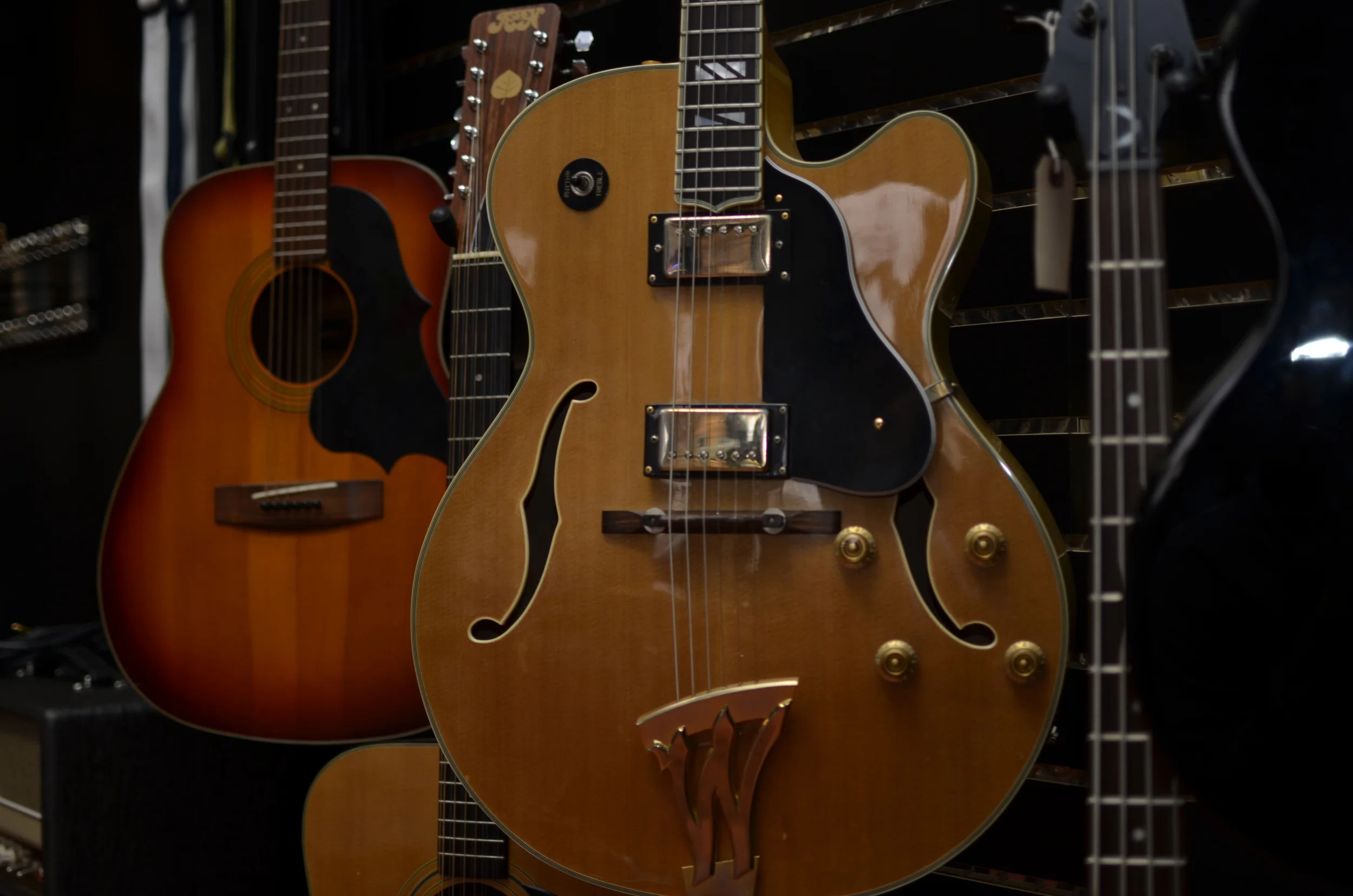This is a very common question we get here at the shop. "Why does my Strat hum in some positions on the switch, but it's dead-silent in two places?" There is nothing wrong with your guitar. This is how it was built.
For a guitar to be silent, it typically requires more than one coil to cancel out the hum. Stratocasters were designed with 3 single coil pickups. Each of the pickups on it's own produces a loud humming noise. This noise comes from the electrical system, and any other electrical noise that may be around you. The most common noise you hear is the 60 Cycle Hum coming from the power system.
The modern style Stratocaster has a middle pickup which is used in reverse. This means that when you mix the middle pickup with either the bridge or the neck, you cancel out the hum. This is why your guitar is silent in two positions, and loud on the other three.
If your guitar has a double coil pickup, commonly known as a "humbucker," then it will cancel hum by itself in position 5. Often times this is wired to turn off one coil in position 4. This allows you to mix the middle with one coil of the bridge. This is known as a "Fat Strat" and is also a popular modification for Strats.
Switch position 1 uses the Neck only
Switch position 2 uses Neck and Middle
Switch position 3 uses the Middle only
Switch position 4 uses the Middle and Bridge
Switch position 5 uses the Bridge only
Positions 2&4 Are Hum Canceling
The volume control works on the entire guitar. The tone controls do not. The knob marked NT is the Neck Tone. The knob marked MT is the Middle Tone. The knobs will interact with the other pickups in positions 2&4.
Our favorite Stratocaster pickups cancel hum in every position. These are known as "Noiseless" Single Coils. They are actually humbuckers in diguise. There are many different types available. Many don't sound like traditional Strat pickups. We have our favorites and we'd be happy to advise you. Feel free to email or call us if you want more information.







